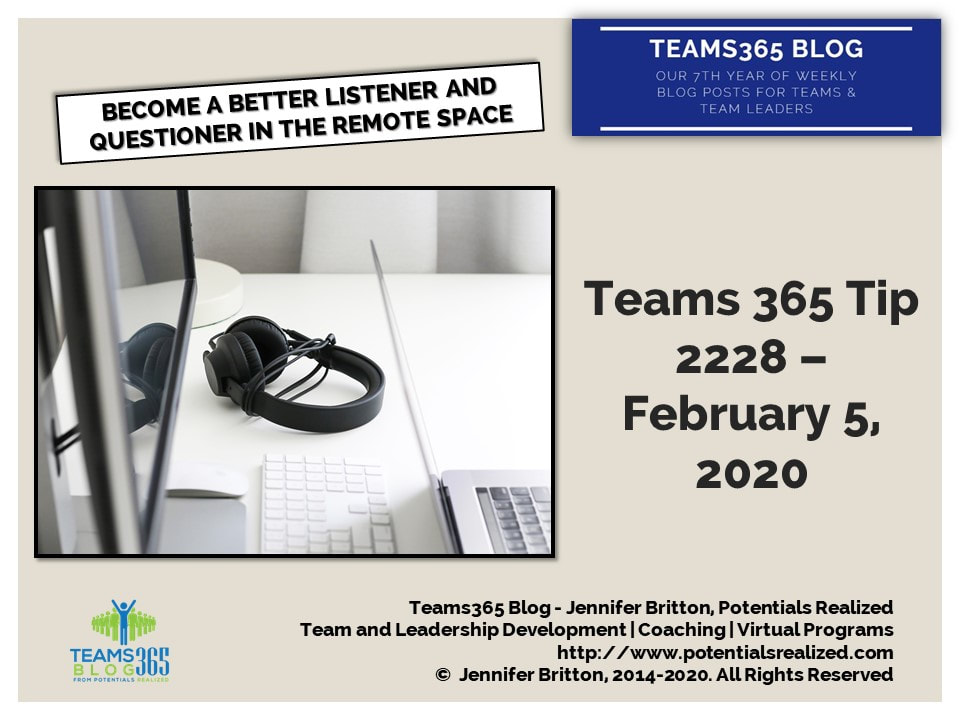Let’s look at each one in turn:
Listening – Listening is a skill set that is under-developed for many professionals today.
A challenge in the remote space is we may (or may not) have visual cues of listening. Some researchers assert that upwards of 55% of our message comes from the visual cues of body language (i.e. how someone is standing, if they are smiling, or what their eyes are saying). In the remote space, we may not see the other person, and even if we are streaming, we may only see one part of their body in a more artificial or plastique way).
Often, we are thinking about what the point we want to get across, rather than truly listening for what the other person is saying.
In the remote space, what are you listening for? What are you noticing about the word choice? What are you noticing about the energy of the conversation? The pace of the conversation? What are the word choices you are hearing?
What we pick up when we listen is also likely to influence our word choice and how we adjust our speaking with others. There is a scientific term called mimicry. In intimate relationships like a mother and a child, safety and connection is created by a mirroring of pace, sound, even gestures. What are you doing to create that safety and connection? Be sure to check out my January post on these topics if you haven’t looked at them yet.
Questions – Questions are key to powerful communication in the remote space. What do you notice about how you ask questions? Are they clear?
Some general guidelines:
Ask one question at a time – If we ask several questions at one time, it may confuse the person we are speaking with. As I like to say as a mentor coach – watch for stacking – or when you ask two questions at once.
Watch where your questions go – Are they open? Short? If we start questions with a WHAT they are usually the most open ended. Questions that start with WHY may activate some defensiveness. Notice what happens next time you ask a why question in the remote space where you can see each other. Unless there are high levels of trust, you may find the person raises their shoulders and their tone of voice changes.
Provide a pause before jumping in with your question – Let the other person finish, and hopefully breathe, before you ask your question.
This week zoom into what you notice about your listening and questioning in upcoming conversations. What do you notice?
Enjoy!
Jennifer
Potentials Realized | Coaching Team Leaders | Remote Pathways Podcast
Team and Leadership Development | Coaching | Everything DiSC
Phone (416)996-8326
Get your planning on with the PlanDoTrack Workbook and Planner or Coaching Business Builder
Looking to enhance your virtual conversations? Webinars? Pick up a copy of Effective Virtual Conversations at Amazon.
Check out upcoming programs on our calendar!

 RSS Feed
RSS Feed





